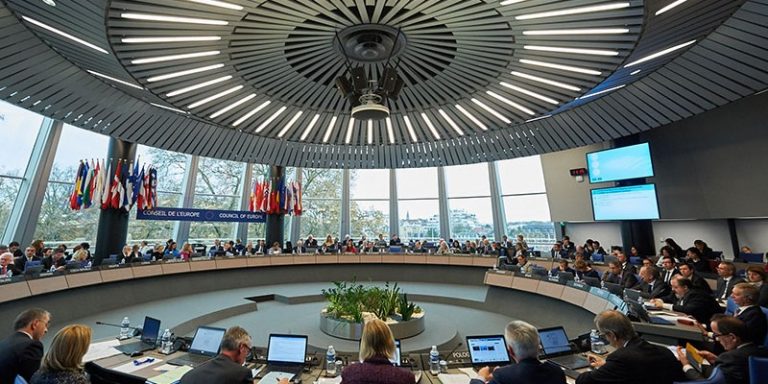
The Council of Ministers adopted several guidelines for the 47 member states of the Council of Europe. They are intended to promote the defence of equality and protection against discrimination and hatred during the COVID-19 crisis and in possible future similar crises. Artificial intelligence, digitisation and contact tracing are among the solutions envisaged, as are prevention, surveillance and protection measures.
Guidelines to combat discrimination
The guidelines, drawn up by the Steering Committee on Anti-discrimination, Diversity and Inclusion (CDADI), cover the fight against hate speech and violence, prevention of discrimination, information, protection, access to services and benefits, digital technology and artificial intelligence. In particular, they call on Member States to take the following measures:
- Maintain an active and ongoing dialogue with vulnerable groups throughout the crisis, involve them in the design of crisis-related measures and policies, and ensure that their concerns are taken into account in decision-making processes.
- Ensure that all persons belonging to vulnerable groups have access to housing that meets adequate health standards and allows them to comply with health regulations and recommendations.
- Ensure that persons belonging to vulnerable groups have equal and effective access to health care, including available vaccines.
- Ensure that all children, including those belonging to vulnerable groups, continue to have access to adequate education.
- Take appropriate measures to protect staff, including those from vulnerable groups.
- Focus on preventing and addressing violence against members of vulnerable groups.
- Take the necessary measures to ensure that digital tools developed in response to the pandemic do not discriminate against people from vulnerable groups or otherwise infringe on their rights.
In the following section, we will discuss the measures taken in relation to this last point.
The recommendations of the Council of Europe on artificial intelligence against inequalities
Two guidelines have been announced around digitization, artificial intelligence and contact monitoring:
- Ensure that people from vulnerable groups have access to services and benefits, even when they are not able to use digital means to request them.
- Ensure that digital tools do not discriminate against people from vulnerable groups.
In a report written by the Council of Europe, some examples are put forward to address discrimination, diversity and inclusions due to the context similar to the COVID-19 pandemic:
- In the UK: an emergency platform, DevicesDotNow, has been developed to enable the most vulnerable people to go online to shop for essentials, get help if needed and connect with others to stay socially connected. About 11,000 people have reportedly benefited from this tool. At the same time, the ethical committee advising on the development of this application announced that 21% of the British population does not own a smartphone and asked that consideration be given to the degree of impact this might have in terms of inequality.
- In Germany: An application has been set up to track potential COVID-19 carriers. The government wanted the platform to meet the highest standards of security and data protection. The Federal Office of Information Technology therefore provided the best possible support for the development of the tool.
- In Slovakia: the Slovak Constitutional Court voted to halt the development of a
In Slovakia: the Slovak Constitutional Court voted to halt the development of a contact-tracking application that had raised concerns among the population and the government because of the need for massive data collection.
The Council of Europe calls on central, regional and local authorities to play a key role in the implementation of these guidelines, together with equality bodies, national human rights institutions, but also AI and digital specialists.
Translated from Le Conseil de l’Europe souhaite utiliser l’intelligence artificielle pour lutter contre les discriminations









